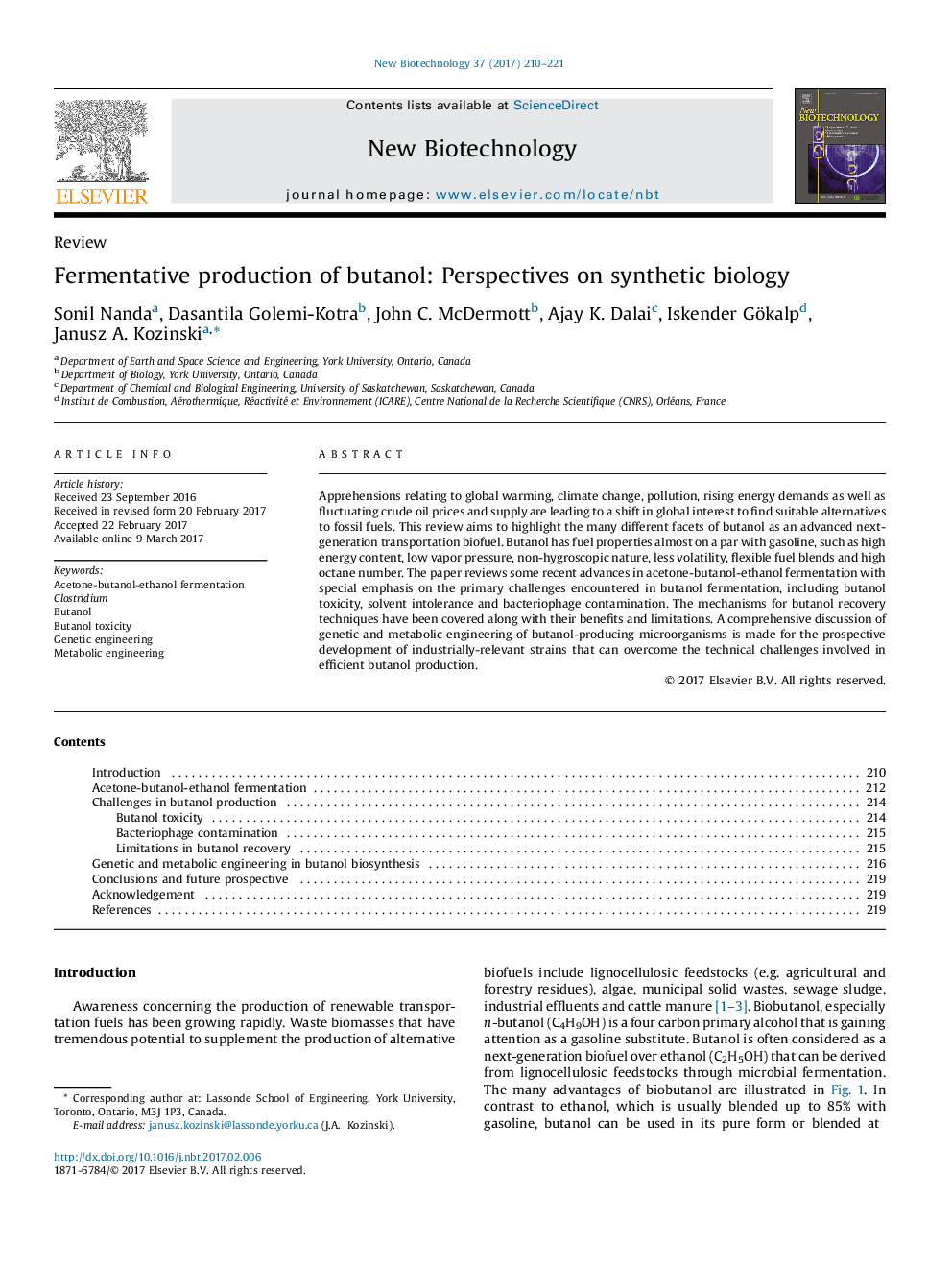| Article ID | Journal | Published Year | Pages | File Type |
|---|---|---|---|---|
| 6452870 | New Biotechnology | 2017 | 12 Pages |
â¢Butanol is an advanced drop-in biofuel for vehicles without engine modification.â¢Butanol is produced by acetone-butanol-ethanol fermentation using Clostridium spp.â¢Acetone-butanol-ethanol fermentation consists of acidogenic and solventogenic phases.â¢Butanol fermentation is hampered by phage contamination, solvent stress and toxicity.â¢Genetic and metabolic engineering can generate hyper-butanol producing bacteria.
Apprehensions relating to global warming, climate change, pollution, rising energy demands as well as fluctuating crude oil prices and supply are leading to a shift in global interest to find suitable alternatives to fossil fuels. This review aims to highlight the many different facets of butanol as an advanced next-generation transportation biofuel. Butanol has fuel properties almost on a par with gasoline, such as high energy content, low vapor pressure, non-hygroscopic nature, less volatility, flexible fuel blends and high octane number. The paper reviews some recent advances in acetone-butanol-ethanol fermentation with special emphasis on the primary challenges encountered in butanol fermentation, including butanol toxicity, solvent intolerance and bacteriophage contamination. The mechanisms for butanol recovery techniques have been covered along with their benefits and limitations. A comprehensive discussion of genetic and metabolic engineering of butanol-producing microorganisms is made for the prospective development of industrially-relevant strains that can overcome the technical challenges involved in efficient butanol production.
Graphical abstractDownload high-res image (85KB)Download full-size image
